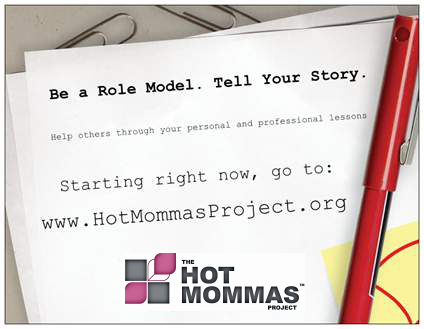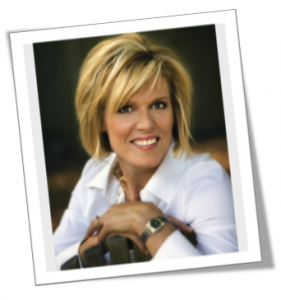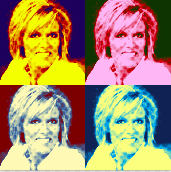Un-Book 2: Featuring Caroline Adams Miller
Here’s a brief quote from Caroline’s case:
It was the summer of 1990 and my life had now become fodder for a popular game show. In facing my darkest demons, and writing about my recovery from bulimia in the first major autobiography by a survivor, “My Name is Caroline” (Doubleday 1988), I had gone from nearly dying to becoming an international role model. I’d had to figure out who I was, and who I wanted to become – essentially a “real” version of myself to live – which made it especially ironic to be standing here playing this game with millions of television viewers.

THANK YOU for taking the time to BE HERE.
It’s our un-book club where we bring role models and mentors from around the world to life. Caroline’s award-winning case-study (see link below) will bring you up to speed before the call.
In what may be the highest value, shortest time ratio: You’ll learn from a real role model and mentor her experiences, amazing life story and be able to ask her questions.
Why do we do this? Because access to role models and mentors – even in case study form – are shown to increase self-efficacy.
What do I do?
Update: This Un-Book Club has taken place. See the below links:
- Read CAROLINE’s CASE – February 2015’s featured case author is Caroline Adams Miller, winner of the Hot Mommas Project Mentoring Category for our last competition.
- Afterparty – additional resources, posted 02.20.15
- Full Call recording [mp3 | m4a]
- Case to go: a PDF document with all the call goodies included – available for our pilot participants
About our featured Case Author and Speaker

Caroline Adams Miller, MAPP published her first book, “My Name is Caroline,” in 1988 (Doubleday), which was the first major autobiography by a survivor of bulimia.
It was an Alternate Selection for the Literary Guild, and won plaudits around the world for its raw, uncensored look at a disorder that few understood or knew how to treat when it was published. “Feeding the Soul” (Bantam 1992) and “Bright Lights for Dark Days” (Bantam 1994) followed, and all were translated into multiple languages.
In 2009, Caroline published a groundbreaking book in the field of Positive Psychology and goal setting, “Creating Your Best Life.” As the first evidence-based book that linked these two scientific theories, the book earned a red star in the Library Journal, and is used in educational settings around the world, along with being a mass market bestseller.
A Harvard graduate, Caroline worked at the Wall Street Journal, and went on to partner with Dr. Michael B. Frisch, a clinical psychiatrist, to write Creating Your Best Life: The Ultimate Life List Guide, a 2011 best seller which sold over “15,000” copies. Update: Caroline’s next book on GRIT is live on Amazon. See Carolines books here.
She recently did a TEDx talk called “The moments that make champions” that is gaining momentum online.
On Friday, February 13th at noon, we have the honor of Caroline’s return to do another talk, this time with our group.
Visit these links to connect with Caroline Adams Miller:
Caroline’s Site | Video Bio | Twitter | LinkedIn
Where to find Today’s Case
You can read Caroline’s case now, at HotMommasProject.org, or join the broadcast at noon sharp when we’ll be reading it together.
Here’s a brief quote from the Introduction:
It was the summer of 1990 and my life had now become fodder for a popular game show. In facing my darkest demons, and writing about my recovery from bulimia in the first major autobiography by a survivor, “My Name is Caroline” (Doubleday 1988), I had gone from nearly dying to becoming an international role model. I’d had to figure out who I was, and who I wanted to become – essentially a “real” version of myself to live – which made it especially ironic to be standing here playing this game with millions of television viewers.
Once Again! The Agenda…
Update: This call is over. Sign up on our email list for an alert for the next UnbookClub.
On Friday, February 13 (WHOA…), 2015 at noon Eastern, the event begins. We’ll meet here for an hour to read or review the case study. Here’s our schedule.
- In advance: Read or review the case.
- Dial in
- Listen as Kathy interviews our expert from 12-12:30 EST.
- Ask your questions (via Twitter) which will be answered between 12.30 and 1.00. #BossAcad = our pilot term. (Option: Submit questions in advance by tweeting them using the pilot hashtag #bossacad.)
- We’ll ask as many questions and answers as we have time for.
- Just stay on the line to attend.

Pingback: February Un-Book Club: Featuring Caroline Adams...
Well, this was a totally ridiculous hit. We only announced this the day before, the call maxed out, and questions keep coming in for Caroline. We will post the answers here – although – Caroline is a pretty Hot commodity folks…can’t promise.
1. Given the relationship with your mother, what role did she have (if any) in the lives of your kids? How did you deal with that relationship?
2. What role did your husband play in your success / recovery?
3. ” I got Positively Caroline when I heard you’d be speaking live. Are you working on another book?”
4. What can women learn about #grit from male-dominated spheres?
1. Given the relationship with your mother, what role did she have (if any) in the lives of your kids? How did you deal with that relationship?
This unfolding and the way I dealt with her, and the way she dealt with being a grandmother within two blocks of my three children for the last twenty years, is all covered in “Positively Caroline.” In fact, the key scene in my life that caused me to reevaluate any hopes of a positive relationship is in “Positively Caroline,” and my Harvard classmates at my 30th reunion chose to act it out professionally as actors and actresses in front of reunion attendees. I’ve never seen any of my books acted out on stage, so it was riveting and moving. Here’s the link to the YouTube video of this occurring: http://youtu.be/3lUaSbypOaI
But to make a long story shorter, I sought out family counseling as my third child was about to be born because my dad was ailing and I wanted closure and healing more than anything else, but my parents stonewalled me on meeting me halfway, and after my father died in 1997, my mother became even harder to deal with. She has unlimited access to my children, but when she was with them, they didn’t know how to cope with the constant criticism of me so they minimized their contact, and she has almost never reached out to them in any, way, shape or form for about fifteen years (and she’s only two blocks away, but that is what she chose).
As for me, my efforts at healing the breach went unanswered until she crossed a line so definitive with me in 2005 that I made the extremely difficult, but necessary, step to cut off all contact with her. Not long after that I began a fourth round of therapy, this time with a specialist who is trained in working with children of borderline mothers. It was only through that counseling that I was able to become completely certain that I’d taken the right, but extremely difficult, decision to prevent me or my family from suffering at her hands. It isn’t a step I recommend lightly, but I’m convinced that it was the only course left to me and I haven’t looked back. Very few people understand how unusual it is to be in a family with this difficult dynamic, and a more thorough explanation is in “Positively Caroline.” The reason it took me six years to start and finish this important book was because I’d never really come to grips with the pain of never feeling a mother’s love, and grieving the hope of ever having it was what I healed in writing the book.
My mother is a difficult and wounded woman who could have made a positive difference in the lives of my children and others if she had chosen, but she didn’t, and that is a loss she will probably never come to grips with because she doesn’t have the capacity for self-examination or introspection.
Long answer, but a very complicated and loaded question for someone in my shoes!
2. What role did your husband play in your success / recovery?
Again, his role in my recovery and subsequent successes is dealt with in both “My Name is Caroline” and “Positively Caroline,” and I want to respect his privacy, but I doubt I could have recovered without the stability he gave me. The last night my father hit me was the night before I got married at 21 – just one week after I graduated from Harvard – and knowing I’d never suffer that kind of abuse again was key to why my recovery started within a year of getting married. Once my husband learned my big secret, he understood that the best role he could play was allowing me the time and space to attend 12-step meetings constantly while also exploring therapy. As our marriage has unfolded over the last 32 years, his unwavering love and support for anything I wanted to do has been consistent, and he has never once asked me to edit myself because he saw how many people said they were transformed by my openness about my recovery.
Has it been perfect? Absolutely not: we were 21 and 23 when we got married, and we essentially had to grow up together and weather together financial disruptions, parenting obstacles, moves, job changes, and the problems his parents have brought to our relationship, and that glue is pretty strong. I also have to say that his approach to fatherhood has been exceptional, and he offered our children the kind of support and love that I wish I had had, and because of that, I love him more. My children have never had to worry that they would lose our unconditional love, or be struck in anger, and that is what I have tried to accomplish more than anything else in my adult life. I had to break a several generation pattern of abuse in my family, and by marrying Haywood and getting help I needed, we did it together.
3. ” I got Positively Caroline when I heard you’d be speaking live. Are you working on another book?”
Yes – my next book is tentatively called “Authentic Grit” and it’s about the topic I addressed in my TEDx talk in September. Here’s where you can see that and participate in my “Authentic Grit” challenge: http://www.carolinemiller.com/grit/
4. What can women learn about #grit from male-dominated spheres?
In male dominated spheres I do believe you have to cultivate grit to be tougher, better and more resilient than men, and to do that you have to never quit, have role models who show you how to persist when the going gets tough, and who know how to recenter when stressed out, and then build a team of positive energizers around you.
Comments are closed.